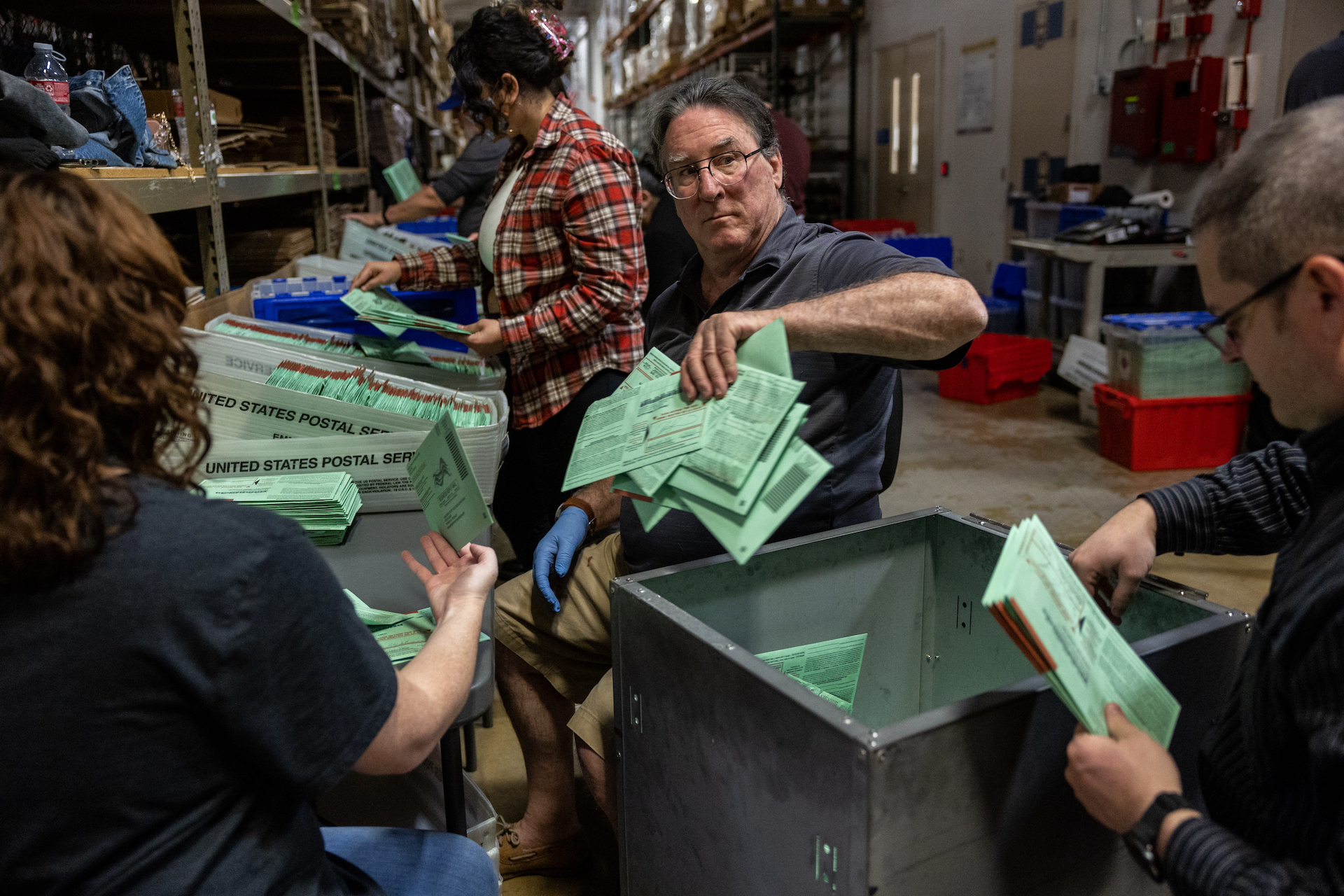
Election workers sort envelopes of ballots at the Maricopa County Tabulation and Election Center on November 08, 2022 in Phoenix, Arizona.
Photo: John Moore/Getty Images
A nuanced picture is emerging from the results of the U.S. midterm elections. There were no runaway winners. The Democrats held onto the Senate, the Republicans took the House of Representatives. Donald Trump has declared his intention to run for a third time for the presidency.
The Altamar team spoke to Paul Maslin, a leading polling expert and campaign strategist, about his main takeaways from the results.
One of the first things Maslin pointed out was that “nobody has an economic message that can persist and succeed for more than a short term.”
“That’s probably a product of globalization more than anything else,” he said. “But Democrats haven’t solved our economic problems. And even if the Republicans have control of the House, that doesn’t necessarily mean that they’re going to somehow turn around people’s economic fortunes.”
An Expensive Electoral Cycle
The unlimited money from political action committees and “outside” groups was largely funneled towards negative advertising against candidates of both parties. We asked if this was going to be a trend from now on. “Welcome to my world,” Maslin said. “Nothing will stop it. The stakes are too high. The available resources are too great. Because neither side has a compelling positive message, it is always the default position of any particular campaign to run negative advertising.”
Predictions of a Republican rout had come fast and furious in right-leaning media — so why didn’t a “red wave” materialize? “[The Republicans] manipulated polls and tried to push polls into the public space — particularly these last two or three weeks — for purely tactical reasons. I don’t think most of those polls had a leg to stand on in terms of their methodology or their accuracy,” said Maslin.
Recent national elections always seem to keep coming down to the same heavily contested states: Georgia, Arizona, and Nevada, to name a few. “Only a few places are left that are truly, truly competitive and Georgia happens to be one of them,” Maslin said. “Nevada and Arizona happen to be two others. And there are a few other states. Pennsylvania obviously is one. Wisconsin, where I’ve lived, is another. But there’s just a handful of states that are truly competitive in any given election.”
Common Ground on Economic Issues
The Hispanic vote in the U.S. is becoming more diverse, according to Maslin. “The more interesting fight is happening, frankly, among Mexican-Americans, where I think some of the Republican inroads — they did make some in Texas — but I’m going to be really interested to see as we analyze what happened in Arizona, Nevada, Colorado, California, et cetera.”
I’m still very worried about the health of our democracy and will be, I think, for some time to come. We got a bit of a reprieve on Tuesday that may be all that it was.
So with such a narrowly divided congress, what does Maslin think will be the impact on policy? “I would think that there is more potential common ground [with economic issues]. […] The culture stuff and the huge divisions on those issues don’t change, and that’s where Republicans have to feed their beast. I presume that they’re going to do a bunch of things that they know Biden will veto, but they have to do it.”
A Good Day for Democracy?
This election cycle saw a surprising trend of split tickets. Is there a resurgence of people looking at the people versus getting carried by an ideological freight train? Maslin said, “I agree, [but this] positive development comes from a negative source, which is these independent voters look at both sides and see utter total failure, chaos and dysfunction. So that’s making them a little bit more of a free agent.”
We ended by asking about the health of American democracy. Is our guest as worried as we are? Where is our democracy going in the next 5 to 10 years? “Before Tuesday, I would say that we were headed deep into the emergency room of the hospital on this subject,” Maslin explained. “Now we’ve been moved slightly away from that, but we’re still in some kind of semi-intensive care unit. […] I’m still very worried about the health of our democracy and will be, I think, for some time to come. We got a bit of a reprieve on Tuesday that may be all that it was.”




